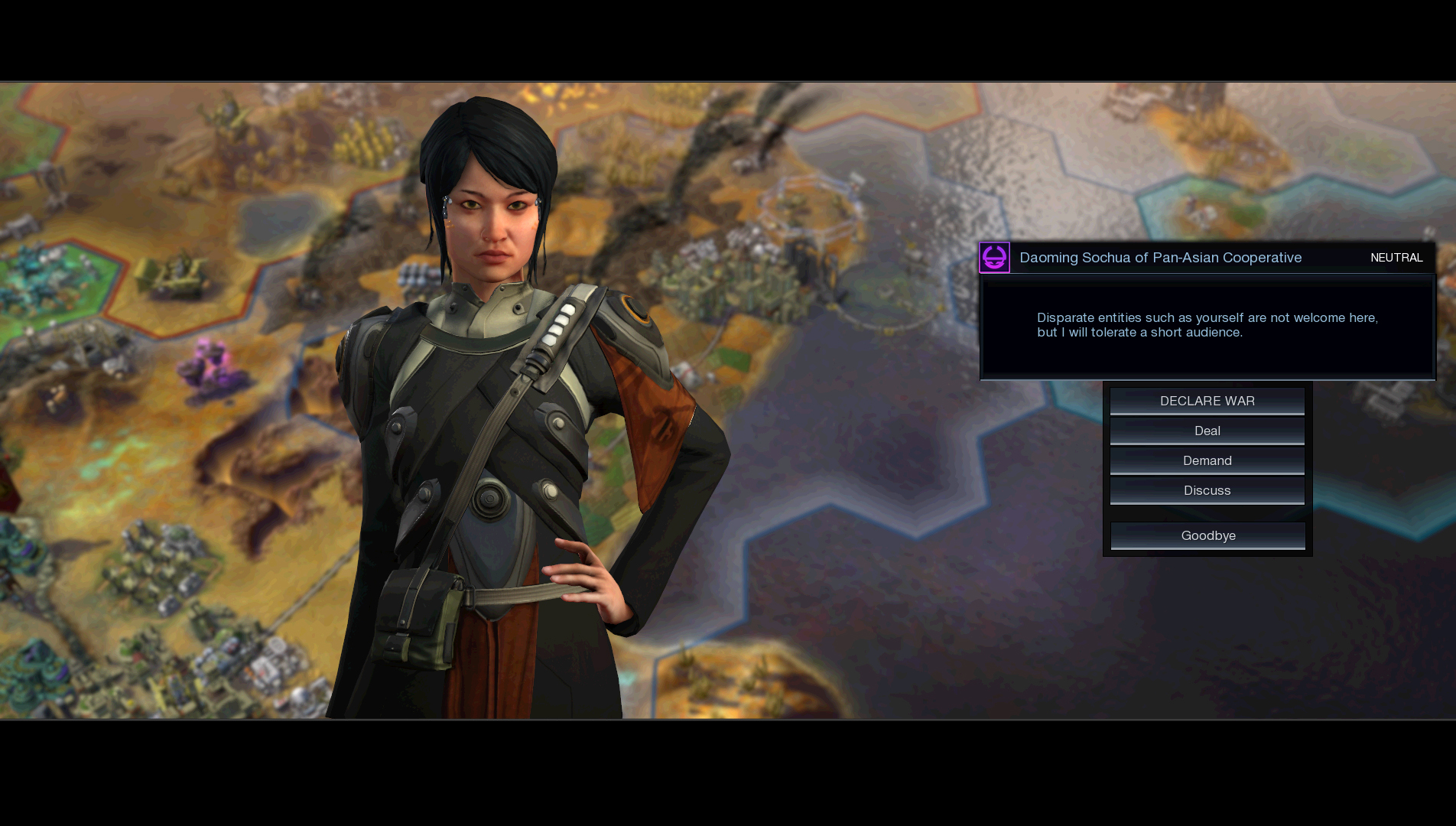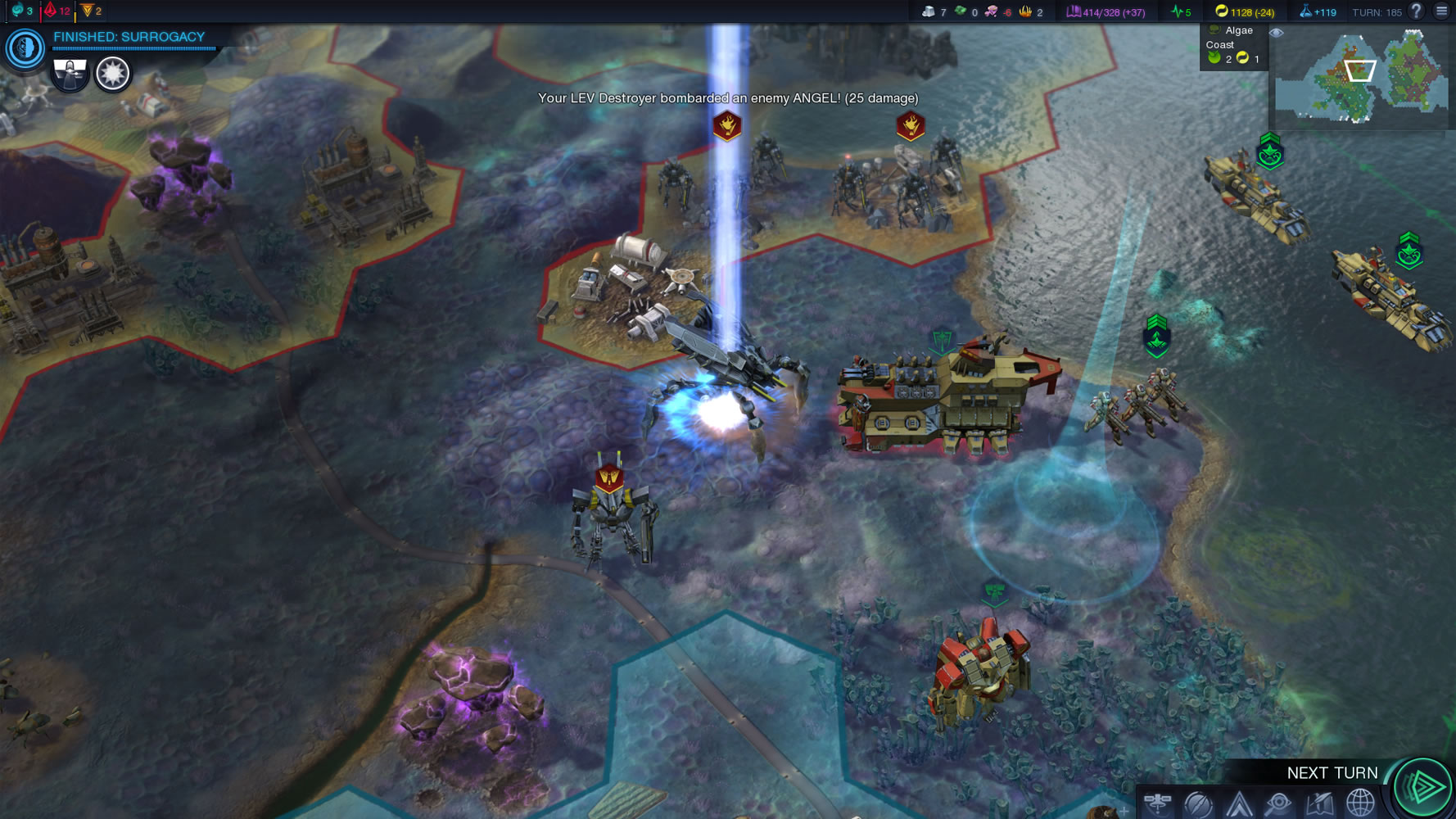
As a lover of sci-fi, I found the UI, landscapes, and units to be just what I was looking for in terms of art design. I should note one huge disappointment in the UI department. In prior Civilization games, the act of creating a wonder felt so satisfying, due in part to a splash screen displaying the wonder and the process of creating it. In Beyond Earth, this is reduced to a mere shot of the wonder's schematics. Though it definitely matches the minimalist feel of the rest of the game, I found myself clearing the notifications of a created wonder without even bothering to view the message itself.
Alien life forms are a welcome, but flawed, change to the early gameplay formula. As opposed to fending off the same barbarians over and over, the planet feels much more varied and hostile. Multiple types of aliens are available to hound your poor, terrified settlement, meaning that strategies must be created and modified around how to best deal with them. Some, like the Manticore, can fling acid at your units via a ranged attack. The Siege Worm, however, is large, destructive, and undefeatable by normal means, making it potentially terrifying in the early to mid-game.
Though I very much like the idea of these new early opponents, they didn't play quite as well as I would hope. Due to the still-problematic AI, the aliens seemed to react illogically to their surroundings. They were often docile when the situation called to be aggressive, and hostile without any provocation. Siege Worms never quite became more than a nuisance to me, and I can count on my hand the number of times I was legitimately worried that they would destroy one of my cities or the tiles around it.

Quests represent another idea that I greatly appreciated, but were not given enough depth to truly make an impression. At semi-random points in the game you are presented with quests which may be sent from your own citizens, Stations (the Beyond Earth equivalent of City-States), or elsewhere. Some of these are multi-faceted, and require very active involvement on your part. Many, though, are little more than a paragraph describing an issue within your settlement requiring your decision-making skills. These generally require you to choose between two options, both bestowing a small benefit such as extra Health or extra movement for your naval units. Quests of this nature are plentiful, which significantly lowers their feeling of importance. There were quite a few times that I simply hovered over what each choice offered and selected one without even glancing at the accompanying text. I would've gladly accepted a smaller number of quests if each had a satisfying amount of depth or required a greater degree of participation.
That last point sums up my feelings on Civilization: Beyond Earth. There are a number of noticeable improvements, but most are not explored with enough depth. To compound this, some systems in the game seem to have reverted to issues that existed within "vanilla" Civilization 5, such as the endgame. On all but the hardest difficulties, it becomes obvious early into the end-game whether or not you will be victorious, but the fact remains that you must grind through the remaining turns if you wish to see the victory screen. This is especially frustrating considering the amount time spent getting to that point, leaving unfinished games due to inevitable defeat feel like time wasted. Seeing the issue fixed with the Civilization 5 expansion, Brave New World, makes me wonder where Beyond Earth's development began.